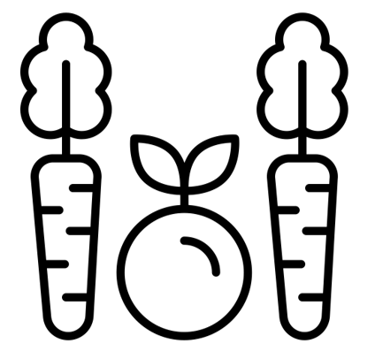Ulcers or acid reflux: what to do?


These two health problems are often treated aggressively, with side effects. But there are alternatives!
Stomach ulcer
In 80% of cases, it's the Helicobacter Pylori bacterium that's to blame. Of course, other factors also play a role, such as excessive use of anti-inflammatory drugs or aspirin, smoking, alcohol, or stress.
Helicobacter Pylori is often present in the stomach without being a problem. When it is associated with an ulcer, the question arises as to whether and how it should be eradicated. Indeed, this bacterium actually protects against the risk of gastro-oesophageal reflux, which increases the risk of oesophageal cancer. It also appears to protect against certain inflammatory bowel diseases. On the other hand, an ulcer is painful and increases the risk of stomach cancer.
To eradicate the bacterium, antibiotics and proton pump inhibitors are usually used. But antibiotics adversely affect the intestinal microbiota, while PPIs have significant side effects. Fortunately, there are alternative, safe, and natural approaches to reducing the presence of the bacterium to a non-pathological level. These include eating cranberries, broccoli sprouts, black cumin, probiotics, green tea, acetylcysteine and more. There are also healing substances such as calendula officinalis, yarrow, and aloe vera. It's a good idea to explore these natural treatments first, before turning to medication if necessary.
Gastroesophageal reflux disease
Did you know that antacids are the 3rd best-selling class of drugs in the world? They are therefore a major source of revenue for the pharmaceutical industry, especially as they are formulated to be taken over the long term.
We don't hear much about diet changes and stress management to treat the causes, and yet these are the keys to recovery.
Proton pump inhibitors are a real “pain in the ass”, if you allow me using that expression. The acidity of our stomachs plays a vital role in our health, and to reduce it over a prolonged period of time is simply dangerous: germ proliferation and lowered immunity, reduced absorption of nutrients, increased cardiac risk, increased mental health risk, and so on. What's more, stopping this type of medication is difficult, as it can lead to excess acidity. Withdrawal must be gradual and requires support.
It's also important to bear in mind that reflux is not necessarily the result of excess acidity but can also be caused by dysfunction of the sphincter between the lower oesophagus and the upper stomach, or by increased intra-abdominal pressure due to excess intestinal fermentation (the pressure of the gases produced slows gastric emptying and favours reflux), or by damage to the lining of the oesophagus. In these cases, the use of antacids is of no use, but still has all its side effects. It's relatively easy to check whether reflux is caused by excess stomach acid, by taking a betaine HCL tablet after a meal. If you then feel a sensation of heartburn, excess acidity can be confirmed.
It is much wiser to focus on treating the causes of reflux, and to do so naturally. For example, if there is an excess of intestinal fermentation, the consumption of fermentable foods can be reduced. If the mucous membrane of the esophagus has been damaged, probiotics (in the diet or as dietary supplements) can be an effective treatment. The nutrittional therapist can make the right diagnosis and, above all, guide you towards the right natural and safe protocol.
